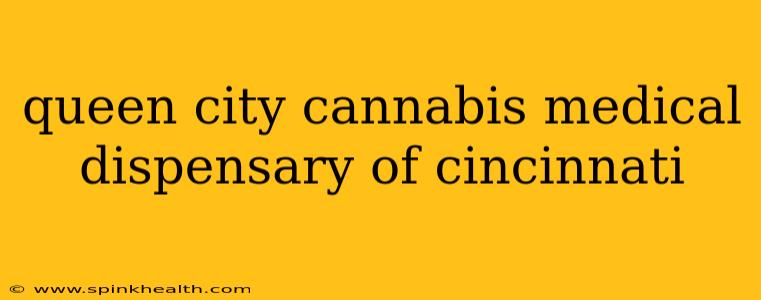Navigating the Queen City's Cannabis Landscape: A Patient's Guide to Medical Marijuana in Cincinnati
Cincinnati, Ohio, often called the "Queen City," is experiencing a transformation in its healthcare landscape with the increasing availability of medical cannabis. For patients seeking relief from qualifying conditions, understanding the intricacies of accessing medical marijuana can be daunting. This guide aims to illuminate the path, focusing on the practicalities and considerations for patients in Cincinnati seeking care. It's a story of navigating a new frontier in healthcare, one patient's journey at a time.
Imagine Sarah, a Cincinnati resident suffering from chronic pain stemming from a debilitating autoimmune disease. For years, she'd tried numerous treatments, each offering only temporary relief or debilitating side effects. Then, she discovered the potential of medical cannabis. Sarah's journey, however, wasn't simply about finding a dispensary; it involved understanding the Ohio Medical Marijuana Control Program (OMMCP) and navigating the process to obtain a certification.
This is where the complexities begin, and where this guide comes in.
What are the steps to get a medical marijuana card in Ohio?
This is arguably the most crucial question for prospective patients. The process involves several key steps:
-
Finding a Certified Physician: First, you must find a physician certified by the state to recommend medical cannabis. This isn't a simple matter of walking into any doctor's office; you need to locate a practitioner who understands the OMMCP and is comfortable recommending medical cannabis for qualifying conditions. Research is key. Many websites list certified physicians in Ohio, making it easier to find someone near Cincinnati.
-
Qualifying Conditions: Ohio's list of qualifying conditions is specific. Sarah's autoimmune disease falls under the umbrella of qualifying conditions, but it's critical to ensure your condition is included. Understanding the nuances of the qualifying conditions is paramount, and consulting with a physician is essential to determine eligibility.
-
Application and Certification: Once your physician confirms you meet the criteria, they'll provide the necessary certification for you to apply through the Ohio State Medical Board's online portal. This application involves providing personal information, medical history, and other relevant details.
-
Obtaining Your Card: After approval, you'll receive your medical marijuana patient identification card, which allows you to legally purchase cannabis products from licensed dispensaries. This is the culmination of a journey that requires patience, preparation and careful navigation of the state's regulatory framework.
Where can I find a medical cannabis dispensary in Cincinnati?
Once you have your card, you can begin to explore the available dispensaries in the Cincinnati area. The Ohio Medical Marijuana Control Program maintains a directory of licensed dispensaries, and many online resources also list dispensaries and their locations. Choosing a dispensary often involves considering factors like product selection, accessibility, and proximity to your home.
What types of medical cannabis products are available?
Ohio's medical cannabis program offers a range of products, including various forms of cannabis oil, tinctures, edibles, and vapes. Understanding the differences between these products and their potential effects is crucial for making informed decisions. Each product offers a unique delivery method and potency, requiring careful consideration of your individual needs and preferences. Consulting with your physician and dispensary staff is often recommended for guidance.
What are the potential benefits and side effects of medical cannabis?
Medical cannabis's potential benefits are numerous and vary based on the condition being treated and the individual patient's response. Potential benefits might include pain management, reduced inflammation, improved sleep, and relief from anxiety and nausea. However, it's crucial to be aware of potential side effects like dry mouth, drowsiness, and changes in appetite. Open communication with your physician is essential to manage any side effects effectively.
Sarah's story, although fictionalized, represents the reality for many patients in Cincinnati. Navigating the medical cannabis landscape can seem complex, but with careful planning, research, and the guidance of qualified professionals, accessing the potential benefits of medical cannabis is achievable. Remember, understanding the program, finding the right physician, and choosing a reputable dispensary are crucial steps in your journey towards finding relief.

